News

Indian Pharma Firm Offers to Cover Costs of Independent Global Drug Tests
Indian pharmaceutical firm Maan Pharmaceutical (Pvt) Ltd. has informed Sri Lanka’s Ministry of Health that it is willing to finance independent testing of the withdrawn batches of the Ondansetron injection at an internationally accredited laboratory.In a formal communication to the Ministry, the company requested that the relevant batches be sent for overseas analysis. It also stressed that maintaining proper storage conditions for the samples prior to testing falls under the responsibility of Sri Lankan health authorities.
The National Medicines Regulatory Authority (NMRA) ordered the immediate removal of four batches of the Ondansetron injection from both public and private hospitals on December 13. The drug, manufactured by Maan Pharmaceutical, was withdrawn following concerns over potential contamination.
Authorities have confirmed that the injection had been administered to two patients who later died. However, officials have emphasised that investigations are still ongoing to establish whether there is a direct link between the drug and the deaths.In its letter, Maan Pharmaceutical reiterated its call for prompt international testing of the affected batches and reaffirmed its commitment to meet all associated costs. The company also highlighted the need to verify that the samples were stored in line with required quality and safety standards before testing is carried out.
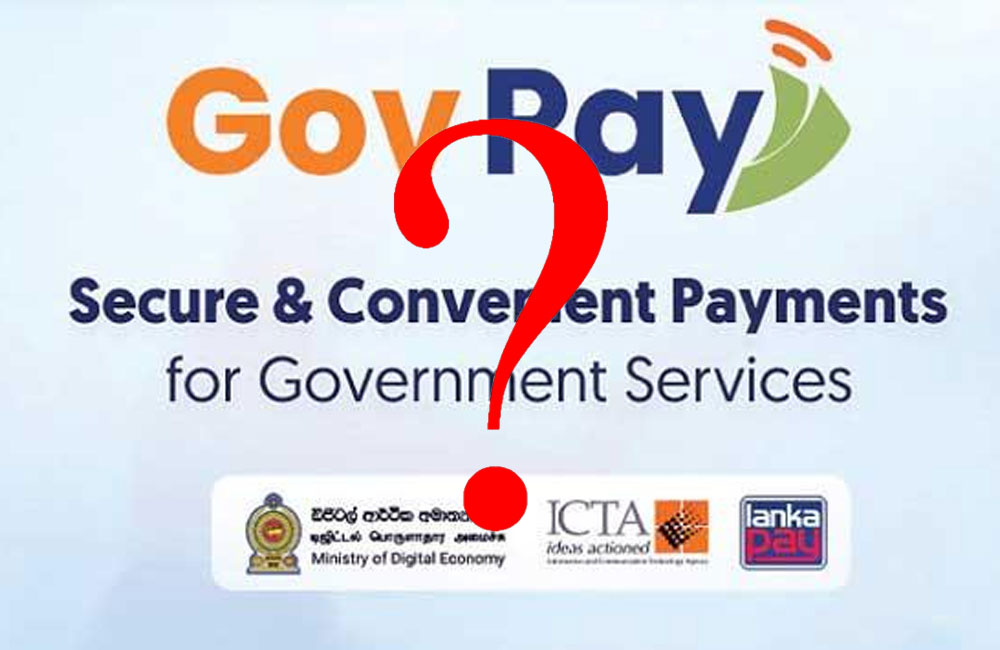
Can GovPay Protect Public Finances in a Climate Crisis?
Sri Lanka’s growing exposure to climate-related disasters has intensified scrutiny of how the State manages revenue during emergencies. Amid cyclone-induced spending pressures, GovPay the Government’s digital payment platform has become a focal point in debates over fiscal resilience, transparency, and long-term sustainability.
Launched less than a year ago, GovPay’s transaction value crossed Rs. 2 billion by the end of 2025, reflecting strong institutional uptake and public adoption. Supporters argue that this rapid growth demonstrates how digital infrastructure can stabilise revenue flows when traditional collection mechanisms are disrupted by disasters.
From an economic perspective, GovPay addresses a chronic weakness in Sri Lanka’s public finance system: fragmented, cash-heavy revenue collection vulnerable to delays and leakages. During disaster periods, these inefficiencies are amplified. Digitisation, by contrast, enables immediate settlement, automated reconciliation, and real-time monitoring—features that become critical when emergency spending must be carefully managed.
The platform’s performance during cyclone response efforts reinforced this argument. Digital donations collected through GovPay ensured traceability and reduced administrative overheads, while enabling overseas contributions without intermediary costs. In a crisis where public confidence matters as much as funding, transparency became a fiscal asset.
Yet the platform’s limitations are equally clear. Rs. 2 billion, while symbolically important, is negligible compared to the fiscal burden of disaster recovery, which runs into hundreds of billions of rupees. GovPay cannot replace concessional financing, insurance mechanisms, or international aid. Its contribution is structural rather than quantitative.
There are also execution risks. Nationwide rollout delays partly caused by adverse weather highlight the vulnerability of digital initiatives to the same disruptions they aim to mitigate. Ensuring continuity, cybersecurity, and institutional readiness remains a challenge, especially at local government level.
Still, GovPay’s expansion into traffic fines, universities, and local authorities signals a deeper transformation. By embedding digital payments into everyday state-citizen interactions, the Government is gradually building a more shock-resistant revenue ecosystem.
In the context of recurring climate shocks, GovPay may not fund reconstruction—but it strengthens the fiscal plumbing that keeps the State functioning under pressure. Its real test will be whether digital efficiency translates into measurable budgetary discipline when the next disaster strikes.

Shop Manager Shot Dead in Ambalangoda; Police Launch Manhunt
A shooting incident in Ambalangoda this morning (22) claimed the life of a man, according to police.Preliminary investigations have identified the victim as the manager of a shop located in Ambalangoda town. Police said the attack was carried out by two suspects who arrived on a motorcycle before opening fire and fleeing the scene.
Initial findings suggest the killing stemmed from an ongoing rivalry between two criminal factions, though authorities say further inquiries are needed to establish the full circumstances.The Ambalangoda Police have launched an investigation and are continuing efforts to identify and arrest those responsible for the shooting.
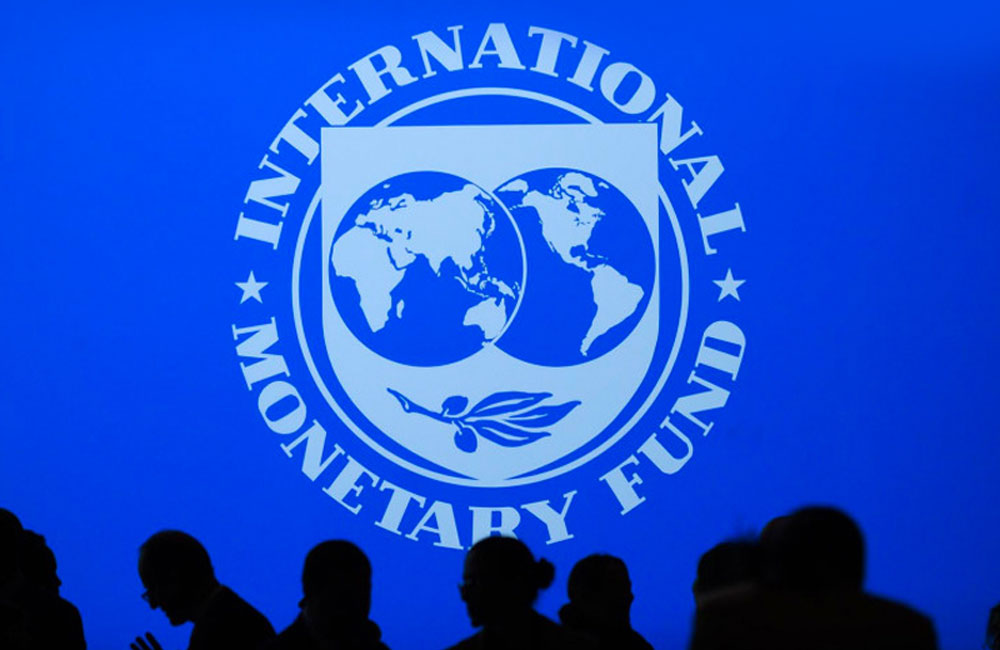
Disaster Aid or Debt Trap? Sri Lanka’s IMF Gamble
The Disbursement of US$ 200 million in response to Sri Lanka’s appeal for IMF emergency financing in the aftermath of Cyclone Ditwah with the approval of the IMF executive board highlights a deeper policy dilemma: whether speed should trump cost in managing disaster recovery.
The Government insists that the Rapid Financing Instrument (RFI) is essential to ease immediate foreign exchange pressures. Yet economists caution that the country may be locking itself into an expensive solution when cheaper, less risky options remain available.
At the centre of the debate is the changing nature of IMF lending. Once considered a low-cost safety net, IMF credit has become significantly more expensive for heavily indebted countries. Factoring in SDR-linked interest rates, exchange rate depreciation, and time-based surcharges, analysts estimate that Sri Lanka’s RFI borrowing could carry double-digit costs in local currency terms.
This matters because Sri Lanka is still restructuring billions of dollars in external debt. Adding high-cost emergency loans even relatively small ones could complicate negotiations with creditors and weaken fiscal credibility. Critics argue that disaster financing should reduce long-term vulnerability, not quietly add to it.
Verité Research has pointed out that domestic markets may already be offering cheaper solutions. Sri Lankan banks attract US dollar deposits at around 5%, signalling investor confidence and unused capacity. A targeted domestic dollar bond for cyclone recovery could mobilise these funds transparently while keeping interest costs below IMF-adjusted rates.
Another underexplored avenue is concessional and grant-based financing. Global development banks and climate-focused funds routinely provide disaster assistance, especially to countries facing climate-related shocks. Sri Lanka’s vulnerability to extreme weather strengthens its case for grants rather than loans yet this route requires diplomatic coordination and strategic patience.
The Government argues that the RFI is justified under IMF rules and does not disrupt the ongoing reform programme. However, the timing has raised eyebrows. The emergency request comes just as a larger EFF disbursement has been delayed due to revised fiscal estimates linked to cyclone spending. Critics fear that reliance on IMF stopgap funding could mask deeper fiscal planning weaknesses.
Supporters counter that emergencies demand swift action and that IMF backing reassures markets. Still, economists warn that credibility built on costly borrowing is fragile. With recovery spending expected to roll out gradually, Sri Lanka arguably has time to design smarter financing structures that balance urgency with affordability.
Ultimately, the cyclone has exposed not only infrastructure weaknesses but also gaps in disaster financing strategy. Whether Sri Lanka emerges more resilient or more indebted will depend on choices made now, under pressure but with lasting consequences.
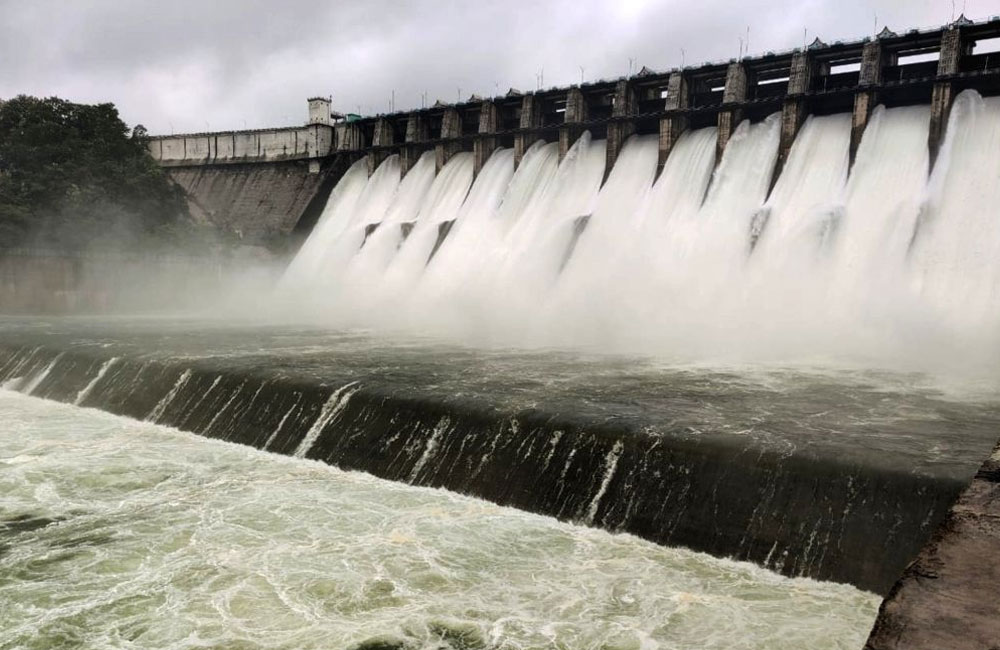
No Flood Threat as Multiple Reservoir Gates Remain Open, Says Irrigation Department
The Department of Irrigation has confirmed that there is no immediate danger of flooding, even though spill and sluice gates at a number of reservoirs remain open due to elevated water levels.Director of Irrigation (Hydrology and Disaster Management) L. S. Sooriyabandara said the water level of the Manampitiya River, which flows into the Mahaweli River, is currently high but not expected to reach flood conditions. He added that several reservoirs within the Mahaweli basin have their sluice gates open as part of controlled water management operations.
Addressing concerns in the Anuradhapura District, Sooriyabandara noted that while the Thanthirimale Reservoir is experiencing relatively high water levels, there has been no significant increase in flooding in surrounding areas.
Rainfall data collected over the past 24 hours show that the highest precipitation was recorded in the Ampara District, with 25 millimetres of rain, according to the Irrigation Department.
The Director further explained that spill gates at 36 reservoirs under the Department’s purview are currently open. However, he stressed that water is being released at safe levels and does not pose a threat to nearby communities.
In addition, 52 medium-scale reservoirs are also discharging water as a precautionary measure, but authorities have assured that these releases do not endanger residents living along riverbanks or in low-lying areas.

No alcohol detected in Ranwala’s blood and urine samples
The Government Analyst’s Department says there is no confirmation that former Speaker and Member of Parliament Ashoka Ranwala had consumed alcohol at the time of the road accident involving him.
The department stated that tests conducted on his blood and urine samples did not establish evidence of alcohol consumption.
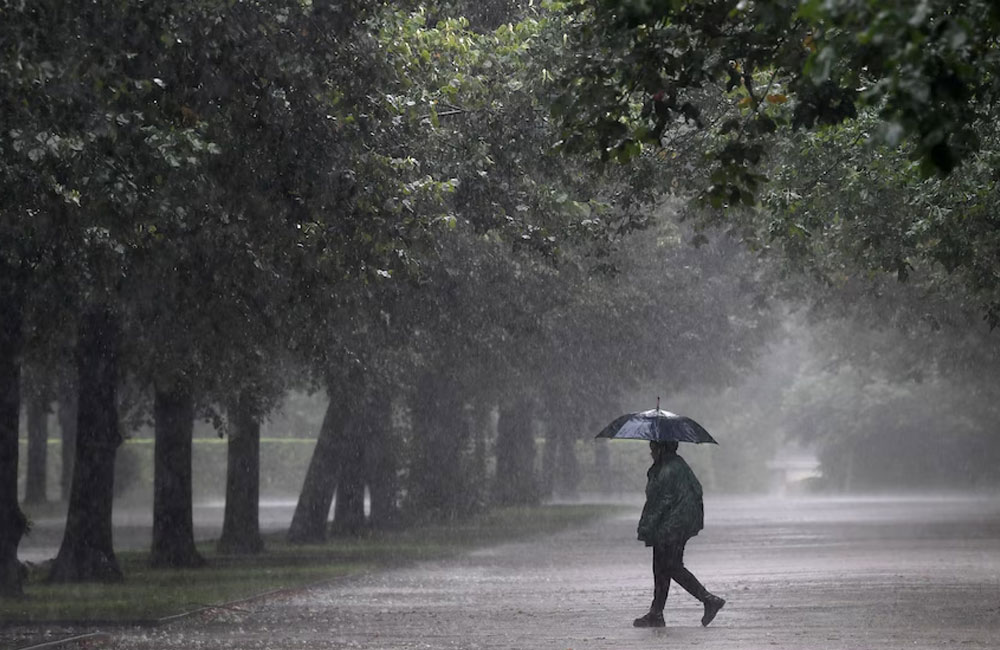
Isolated Showers Forecast for Eastern and Hill Areas Today
Sri Lanka’s Department of Meteorology has forecast limited rainfall in selected parts of the country today , with a few showers expected in the Uva Province as well as the districts of Ampara, Batticaloa, Matale, Nuwara Eliya and Hambantota.
Weather conditions across the rest of the island are expected to remain largely fair throughout the day.
The Met Department also warned of fairly strong winds, reaching speeds of around 40 kmph at times, particularly along the eastern slopes of the central highlands, in the North Western Province, and in the Ampara, Hambantota and Monaragala districts.
In addition, misty conditions are likely during the early morning hours in parts of the Western, Sabaragamuwa and Central provinces, along with the Galle and Matara districts, potentially reducing visibility in some areas.
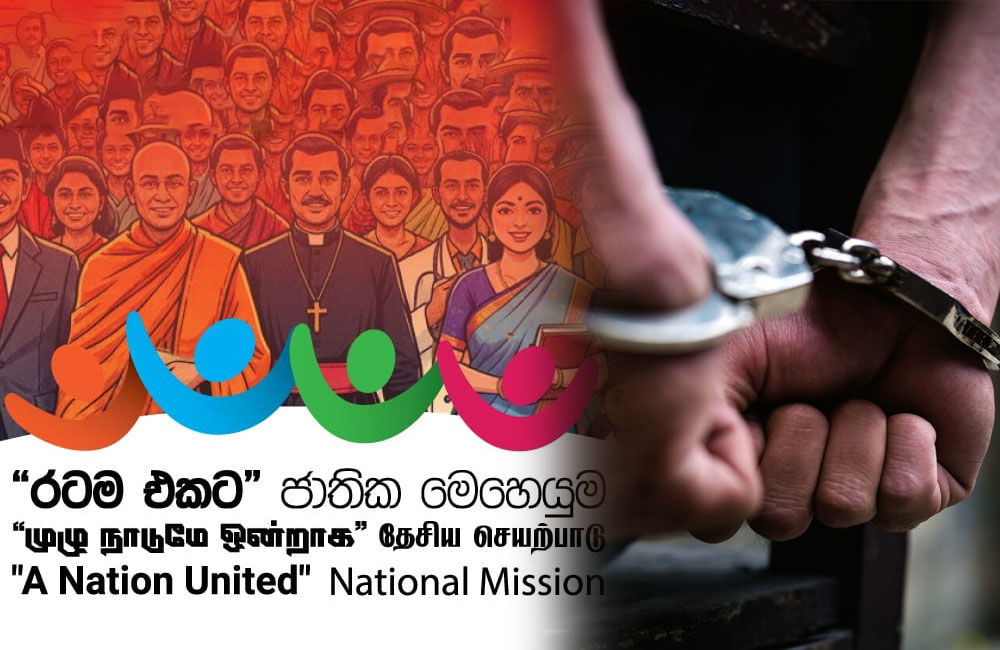
47,000 arrested in nationwide “Rata Ekaṭa” operation
Under the “Rata Ekaṭa” (Nation United) national operation aimed at eradicating illicit drugs from the country, more than 47,000 people have been arrested in islandwide raids linked to drug-related offences.
According to the Police Media Division, operations carried out from October 30 up to yesterday resulted in the arrest of 47,703 suspects across Sri Lanka.
During these raids, police seized large quantities of narcotics in the possession of the suspects, including 276 kg and 374 g of heroin, 1,002 kg and 923 g of crystal meth (ICE), 1,411 kg and 936 g of cannabis, along with hashish and other illicit drugs.
Authorities further stated that detention orders have been obtained for 1,081 suspects to facilitate extended investigations. Meanwhile, 1,130 individuals have been referred for rehabilitation, and investigations into illegal assets have been launched against 47 suspects.

Sri Lankan Parliament announces extended holiday for MPs and staff
The Parliament of Sri Lanka has announced an extended recess for Members of Parliament and parliamentary staff.
Accordingly, a 17-day holiday has been approved for Members of Parliament, while parliamentary staff will receive a two-day leave.
On 18 December 2025, a supplementary estimate was presented to Parliament to facilitate the restoration of public services following the recent emergency disaster situation. The estimate was officially approved after a parliament debate held on 19 December.
Following the approval, Parliament was adjourned until 9:30 AM on 6 January 2026.
Under the authority of the Speaker, parliamentary staff have been granted special leave on 22 and 23 December, as communicated through an official circular.
Under the authority of the Speaker, parliamentary staff have been granted special leave on 22 and 23 December, as communicated through an official circular. These dates are in addition to previously declared holidays on 24 and 26 December.
(Adaderana.lk)
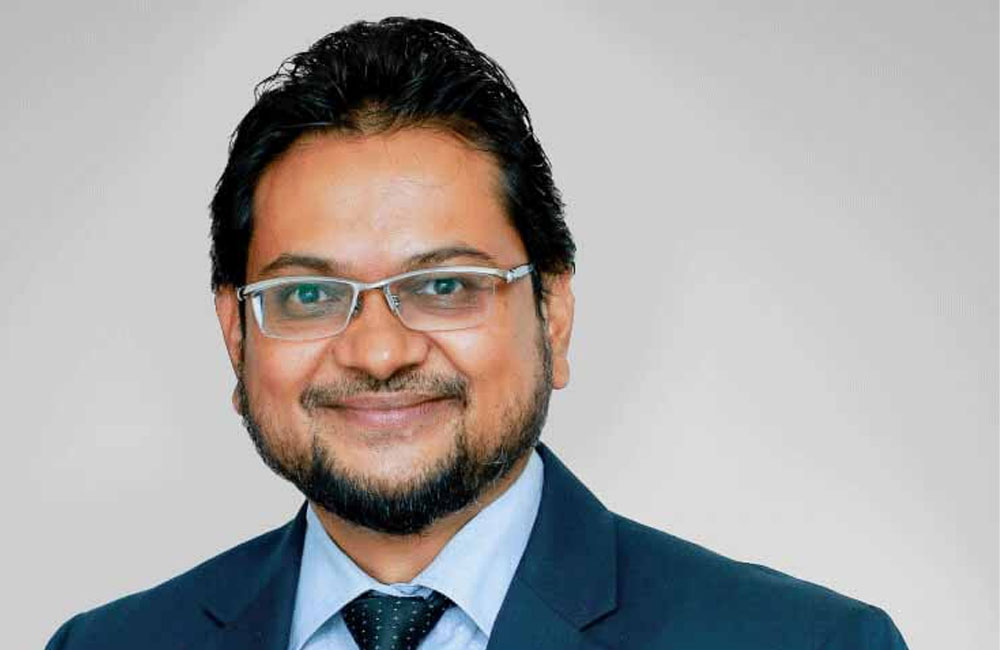
Economist warns IMF RFI too costly for Sri Lanka
 Verité Research Executive Director Dr. Nishan de Mel
Verité Research Executive Director Dr. Nishan de Mel
- Verité Research Chief warns Sri Lanka poised to repeat past mistakes amid cyclone recovery funding push
- Argues IMF RFI financing effective rate exceeds 6% and time-based surcharges add further 2.75% after three years
- IMF Executive Board decides on $ 200 m RFI today
Economic think tank Verité Research has cautioned that Sri Lanka’s move to seek emergency financing from the International Monetary Fund (IMF) under the Rapid Financing Instrument (RFI) could prove costly in the current debt context, urging policymakers to weigh alternative funding options for post-cyclone recovery.
In a detailed analysis shared on ‘X,’ Verité Research Executive Director Dr. Nishan de Mel, a critic of Sri Lanka’s handling of debt repayments during the COVID-19 crisis and the subsequent debt restructuring process, said IMF borrowing has become relatively expensive for Sri Lanka due to effective interest rates that factor in surcharges, Special Drawing Rights (SDR) valuation, and exchange rate movements. He warned against what he described as “knee-jerk” financing decisions in response to Cyclone Ditwah-related spending needs.
According to Dr. de Mel, the effective cost of IMF RFI financing currently could exceed an effective rate of 6% in US dollar terms and over 11% in rupee terms, once exchange rate effects and SDR-linked costs are taken into account.
He also pointed to IMF time-based surcharges, which add a further 2.75% after three years, raising the long-term cost of such borrowing.
Verité argued that these costs could exceed those of alternative financing options available to the Government. Dr. de Mel noted that domestic borrowing in rupees at current three-year Bond yields of around 9% would be cheaper than the effective rupee cost of an RFI loan, while domestic US dollar borrowing could also offer a lower-cost option.
As an alternative, Verité suggested issuing a domestic US dollar Bond specifically for cyclone recovery, potentially through a yield-capped second-price auction. Dr. de Mel said Sri Lankans, including the diaspora, are already lending US dollars to local banks at rates of around 5%, indicating available market appetite at lower yields.
He further said Sri Lanka could explore issuing an Environmental, Social and Governance (ESG)-linked International Sovereign Bond (ISB), backed by cyclone recovery spending key performance indicators and underwritten by a multilateral development bank, which could reduce borrowing costs further.
However, Verité’s preferred option was for Sri Lanka to pursue non-debt or concessional financing. Dr. de Mel proposed that the Government seek disaster recovery grants amounting to around 1% of GDP, or approximately $ 1 billion, from a consortium of multilateral development banks and bilateral partners, instead of relying on additional debt.
He also called for legal adjustments to allow expanded spending capacity, suggesting that Parliament move a resolution under Section 16 of the Public Finance Management Act of 2024 to temporarily lift the 13% of GDP limit on primary expenditure for 2026 to accommodate cyclone-related recovery needs.
“There is no immediate liquidity constraint and recovery spending will take time,” Dr. de Mel said, adding that professional evaluation-based decision-making on debt management was critical to avoid repeating past mistakes.
The analysis comes as the Government expressed confidence on Wednesday that Sri Lanka would secure around $ 200 million from the IMF under the RFI to meet urgent foreign exchange needs following Cyclone Ditwah, while keeping its broader debt restructuring program on track.
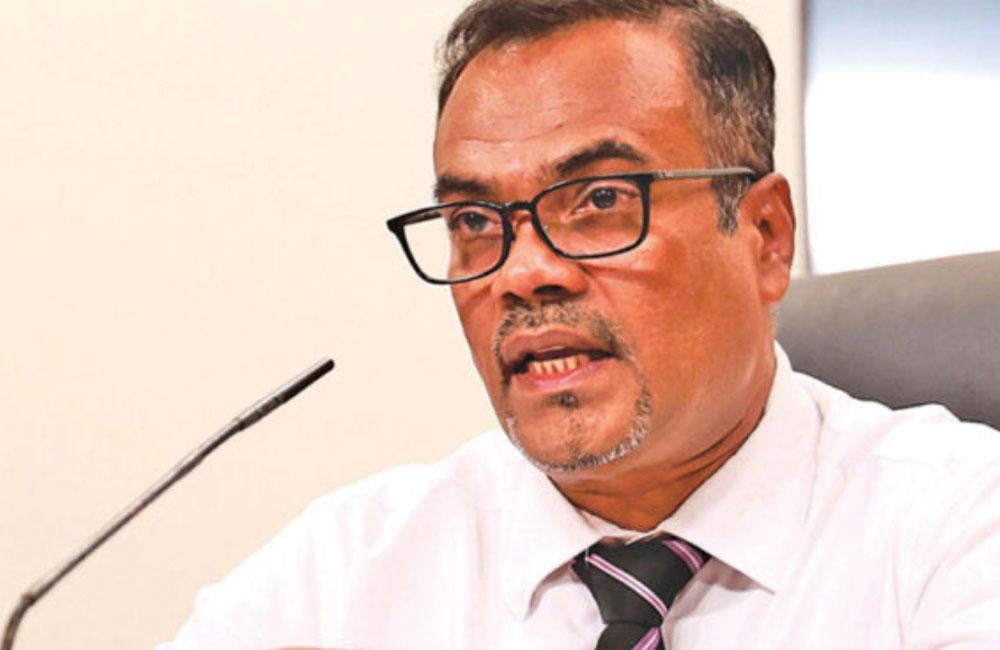 Dr.Anil Jayantha Fernando
Dr.Anil Jayantha Fernando
Addressing a special media briefing, Finance and Planning Deputy Minister Dr. Anil Jayantha Fernando said the request for IMF support was justified under the Fund’s rules given the extraordinary circumstances created by the disaster. The facility was being sought to address immediate financing pressures without destabilising the ongoing IMF-supported reform framework.
The RFI request amounts to SDR 150.5 million (approx. $ 200 million), or about 26% of Sri Lanka’s IMF quota, and is currently under consideration by the IMF Executive Board, which is scheduled to meet today (19).
Sri Lanka had initially been expecting an Extended Fund Facility (EFF) disbursement of about $ 347 million in December following the Fifth Review. However, the foreign exchange pressures triggered by Cyclone Ditwah prompted the Government to seek immediate relief through the RFI. Dr. Fernando said the EFF disbursement is now likely to be delayed until early next year, as a new Rs. 500 billion Supplementary Estimate was submitted for IMF review.
An IMF team is expected to visit Sri Lanka next month to renegotiate a staff-level agreement in line with the revised fiscal position, while safeguarding social protection commitments, which the Deputy Minister said have taken on added urgency in the wake of the disaster.

Court Clears Way for Pentara Residences, Rejects Residents’ Appeal
The Civil Appellate High Court of the Western Province has refused leave to appeal and interim relief sought against Home Lands Group’s flagship Pentara Residences project in Thummulla, Colombo, delivering a significant legal victory for the developer and allowing construction to proceed uninterrupted.
In an order dated 11 December 2025, the Court dismissed all applications filed by residents living near the construction site, upholding an earlier ruling by the Colombo District Court. The appellate bench ruled that the lower court had acted correctly in declining to issue urgent enjoining orders and in deciding to hear both parties fully at the stage of interim injunctive relief.
The Court further observed that the petitioners’ actions appeared calculated to circumvent the equitable principle that “delay defeats equity.” It noted that construction had been ongoing for several months before the applications were filed, undermining claims of urgency that would justify immediate judicial intervention.
Residents in the vicinity of the project had raised concerns over excessive noise, vibration and dust arising from piling, excavation and the use of heavy machinery. On this basis, they sought urgent court orders to halt construction pending the outcome of legal proceedings, arguing that the works interfered with their health and the peaceful enjoyment of their properties.
However, the District Court found that the construction had already progressed for a considerable period and ruled that the threshold of urgency required to grant an enjoining order had not been met. Instead, it directed that the matter be taken up after notice, allowing both sides to present their cases at the interim injunction stage.
In affirming this reasoning, the Civil Appellate High Court highlighted that the plaint itself acknowledged inspections and inquiries conducted by multiple state institutions, including the National Building Research Organisation (NBRO), the Central Environmental Authority (CEA), and the Electro Technology Laboratory. These agencies had examined the residents’ complaints prior to the filing of court action.
The plaintiffs who filed 12 separate cases—include several professionals and homeowners residing in close proximity to the development site. Despite the multiplicity of applications, the appellate court refused leave to appeal in all cases and awarded costs against the petitioners.
Pentara Residences is a 40-storey twin-tower luxury residential development approved by the Board of Investment, with a total investment estimated between US$100 million and US$110 million. Home Lands Group acquired nearly one acre of prime Colombo land for the project at Rs. 4.5 billion, marking the largest land transaction ever recorded in the city.
The project, backed by Hatton National Bank PLC, commenced construction after receiving development approval from the Urban Development Authority and securing all statutory and environmental clearances, including NBRO and Environmental Consultative Committee approvals.
Legal representation for Home Lands was led by President’s Counsels Ali Sabry, Kushan De Alwis and Eraj De Silva, while the residents were represented by President’s Counsel Kuvera de Zoysa and his legal team.
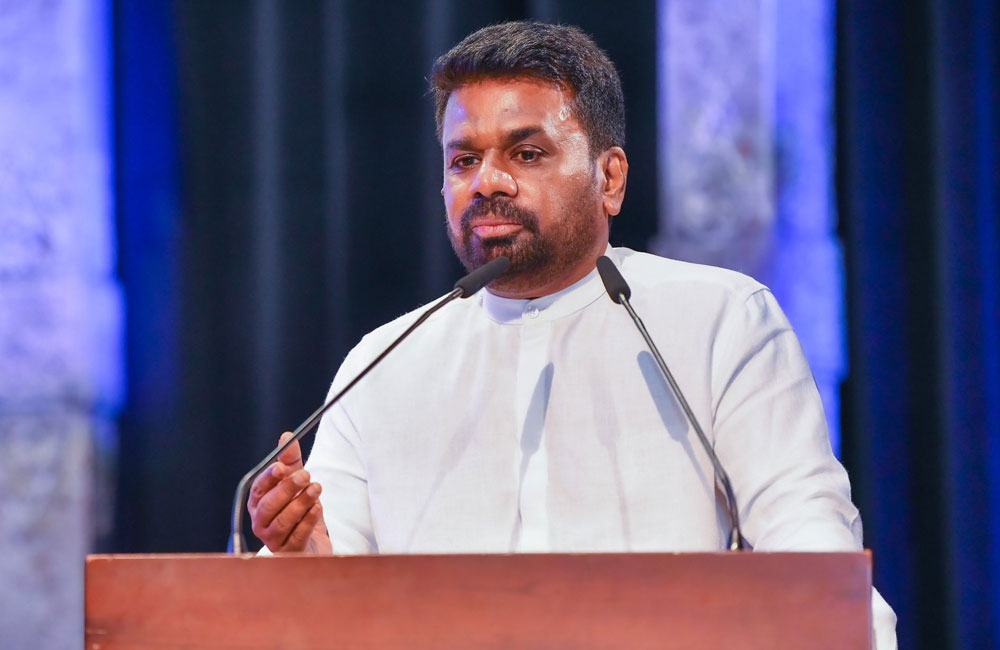
President to Join Parliamentary Debate on Rs. 500 Billion Supplementary Allocation
President Anura Kumara Dissanayake, in his capacity as Minister of Finance, Planning and Economic Development, is scheduled to attend Parliament today (19) to participate in the debate on a supplementary estimate amounting to Rs. 500 billion.The proposed allocation is set to be taken up for discussion during today’s parliamentary proceedings, with lawmakers expected to examine the need for additional expenditure and its implications for public finances.
The President’s participation underscores the significance of the debate, as the supplementary estimate represents a substantial adjustment to the government’s financial framework.
Page 18 of 651